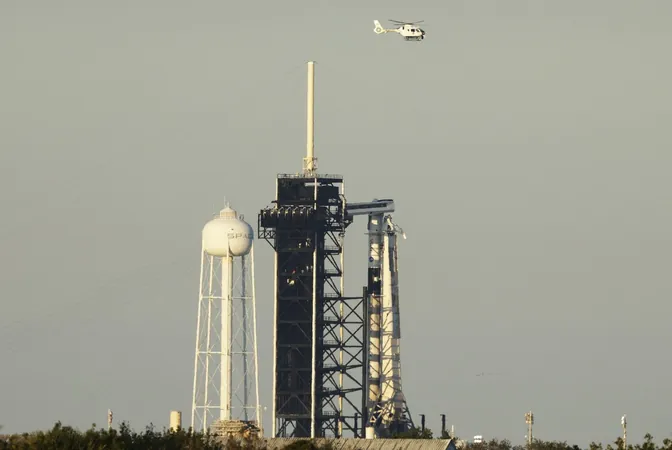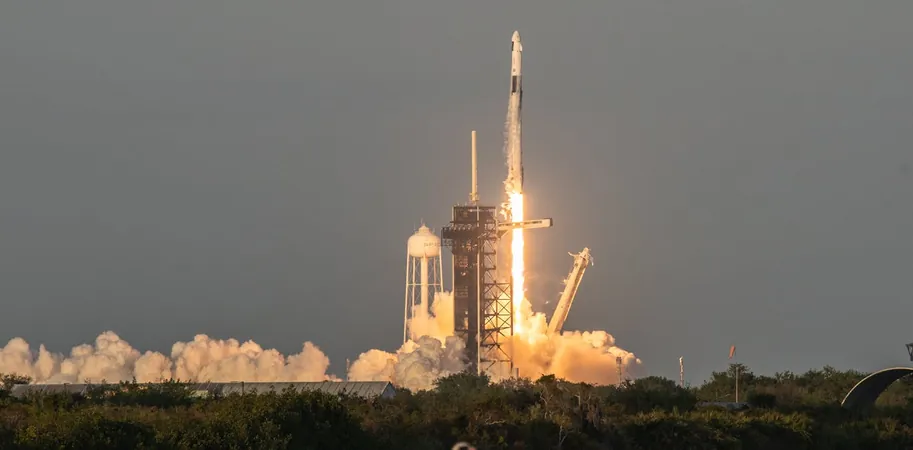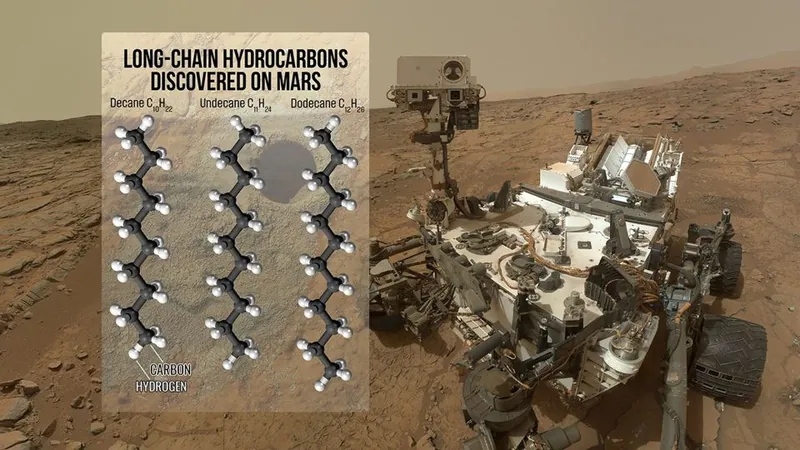
SpaceX Postpones Key Mission to Replace Stuck NASA Astronauts Due to Launch Pad Issues
2025-03-13
Author: Liam
CAPE CANAVERAL, Fla. — In a significant setback for NASA's ongoing mission, SpaceX has postponed its anticipated flight to the International Space Station (ISS), originally scheduled for Wednesday evening. The delay stems from an unexpected issue with the launch pad related to one of the critical hydraulic systems that secures the Falcon rocket prior to takeoff.
As the countdown approached the final hours, engineers identified concerns with the hydraulics responsible for releasing one of the two arms that hold the rocket to its support structure. This mechanism is essential for allowing the rocket to tilt back just before launch, which is a pivotal safety procedure. The decision to halt the launch came less than an hour before liftoff, leaving the four astronauts strapped inside their capsule in a state of anxious anticipation.
While SpaceX has not yet set a new launch date, there is hope that the next attempt may occur as early as Thursday night. The urgency of the situation is heightened by the fact that this mission is intended to replace two astronauts—Butch Wilmore and Suni Williams—who have been stationed aboard the ISS since June. Their extended stay follows complications with Boeing’s Starliner capsule, which faced severe technical issues during its initial flight. This led to NASA's decision to transfer Wilmore and Williams to SpaceX’s Crew Dragon for their return journey.
The new crew, comprised of astronauts from the U.S., Japan, and Russia, is poised to take over from Wilmore and Williams, allowing them to finally head home after nearly nine months of service. This ongoing mission underscores the complexities and challenges inherent in space travel, further complicated by the need for reliable transportation between Earth and the ISS.
As we await further updates from SpaceX regarding the rescheduled launch, this incident serves as a reminder of the unpredictable nature of space exploration and the critical need for robust engineering in every aspect of rocket operations. Stay tuned for more developments, as this situation continues to unfold.









 Brasil (PT)
Brasil (PT)
 Canada (EN)
Canada (EN)
 Chile (ES)
Chile (ES)
 Česko (CS)
Česko (CS)
 대한민국 (KO)
대한민국 (KO)
 España (ES)
España (ES)
 France (FR)
France (FR)
 Hong Kong (EN)
Hong Kong (EN)
 Italia (IT)
Italia (IT)
 日本 (JA)
日本 (JA)
 Magyarország (HU)
Magyarország (HU)
 Norge (NO)
Norge (NO)
 Polska (PL)
Polska (PL)
 Schweiz (DE)
Schweiz (DE)
 Singapore (EN)
Singapore (EN)
 Sverige (SV)
Sverige (SV)
 Suomi (FI)
Suomi (FI)
 Türkiye (TR)
Türkiye (TR)
 الإمارات العربية المتحدة (AR)
الإمارات العربية المتحدة (AR)